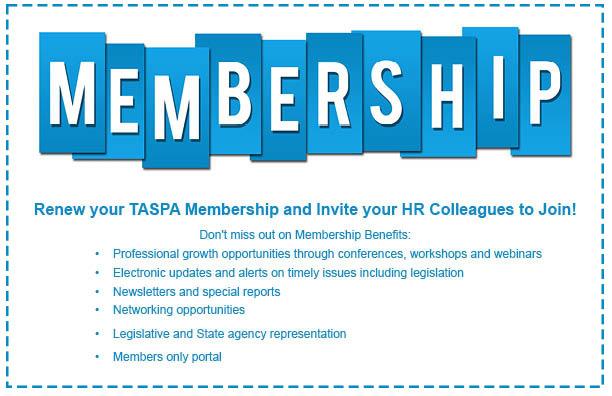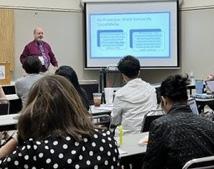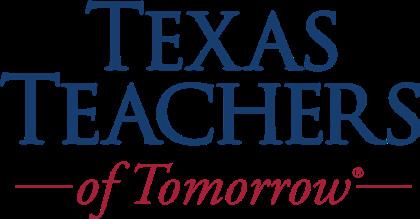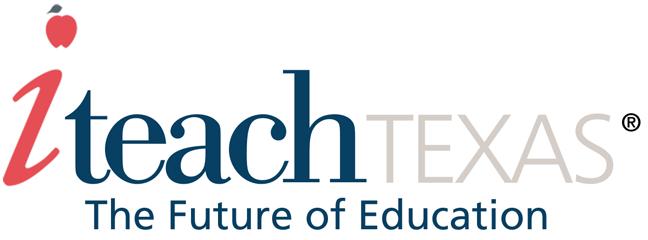The Final Weeks of the 88th Legislature

Also in this issue:
• Districts of Innovation
• Avoiding Pitfalls
When Disciplining Employees for Use of Force




Also in this issue:
• Districts of Innovation
• Avoiding Pitfalls
When Disciplining Employees for Use of Force


Chandelle Crane, Executive Director
Jeannie Tomasek, Director of Programs & Membership
Kathy Cervantez, Director of Communications & Professional Development
Al Rodriguez, President, Elgin ISD
Kimberly Rich, President-Elect, Dickinson ISD
Johjania Najera, First Vice President, Keller ISD
Chris Bailey, Second Vice President, Abilene ISD
Craig Lahrman, Secretary, Ysleta ISD
Max Flores, Immediate Past President, Lubbock ISD
Ben Muir, District I, Northside ISD
Dr. Tyrone Sylvester, District II, Goose Creek CISD
Dr. Tamey Williams-Hill, District III, Manor ISD
Theresa Burkhalter, District IV, Waxahachie ISD
Chris Tatum, District V, Amarillo ISD
Jose Barraza, District VI, Canutillo ISD
Ben Muir, District I, Northside ISD
Brian Kroeger, District II, Splendora ISD
Bob Mabry, District III, Liberty Hill ISD
Jason Liewehr, District IV, Denton ISD
Heath Simpson, District V, Frenship ISD
Bobbi Russell-Garcia, District VI, Ysleta ISD
Kayla Vaughn, District I, Gregory-Portland
Barbara Ponder, District II, Barbers Hill ISD
Kris Reyes, District III, Pflugerville ISD
Greg Gaston, District IV, Carrollton-Farmers Branch ISD
Paul Kimbrough, District V, Canyon ISD
Christopher Smith, District VI, El Paso ISD
Charity Salinas, District I, Southside ISD
Marcus Higgs, District II, Texas City ISD
Sue Pfleging, District III, Waco ISD
Asheley Brown, District IV, Little Elm ISD
Paige TeBeest, District V, Amarillo ISD
Celina Stiles, District VI, Socorro ISD
**Includes President, President-Elect & District Representatives
Kayla Vaughn, District I, Gregory-Portland ISD
Dr. Nkrumah Dixon, District II, College Station ISD
Monique Williams, District III, Austin ISD
Kendra Hancock, District IV, Dallas ISD
David Manchee, District V, Amarillo ISD
Fernando Garnica, District VI, Anthony ISD
Melissa Aguero-Ramirez, District I, Pharr-San Juan-Alamo ISD
Shay Sincinski, District II, Bryan ISD
Tammy Nobles, District III, Victoria ISD
Danielle Copeland, District IV, Malakoff ISD
Rhonda Dillard, District V, Frenship ISD
Jiovana Gutierrez, District VI, Ysleta ISD
members along with the TASPA staff went to Austin for our very first TASPA Day at the Capitol.
Early on in my educational career I realized the importance of advocacy for public education. Oftentimes I heard people say that if educators would vote en masse, we would win every election in favor of our profession. Being a right-towork state, our workforce has sometimes been looked at as a minor obstacle rather than a force and voice of reason. Having started my career working with groups of students who were marginalized for one reason or another, I quickly understood why educators are always in the forefront, and in my opinion the key, to passing meaningful change.
Therefore, in my professional life I have always been an advocate for public education. A vocal advocate. Those of you that know me, know that it was shortly after becoming involved with TASPA that I began to advocate for our association to have a seat at the table. Fortunately, over the years we have had other members step up their advocacy efforts as well. However, most of the time it has been on behalf of their community if not their district. TASPA has long been a resource for Human Resource personnel and departments across the state. TASPA is also nationally recognized as a leading organization amongst other similar organizations. In my humble opinion, it was about time that we took the next step and take our advocacy, our resources, and our passion for public education to the law makers. As one might assume, when I became president, this was a primary agenda item of mine. Thankfully, the board agreed and on Tuesday, April 11, 2023, a small group of TASPA
TASPA members should be proud of the progress our association has made in such a short period of time. Chandelle Crane, TASPA Executive Director, with the help of Jeannie Tomasek, Director of Programs & Membership and Kathy Cervantez, Director of Communications & Professional Development worked with David Anderson of HillCo Partners to get TASPA through the doors of the Capitol. Together, your TASPA staff and HillCo helped to set TASPA up as a primary resource to our legislators. Those who met with us, and those who wish to engage us in conversation about all things personnel that pending legislation affects, are now in the know about TASPA being a primary resource for them moving forward. We were able to provide not only details about our association but also speak to some of the concerns we as educators have.
I encourage all of you to get involved in the legislative process. Sometimes all it takes is a phone call to your local representative to get the information out. In the interim, I am thankful for our TASPA members who helped to get the ball rolling. If you have a chance, please let your fellow TASPA members who were able to join us at the Capital know that they are appreciated:

• Brian Kroeger (TASPA Legislative Committee Chair), Splendora ISD
• Jason Liewehr, Denton ISD
• Ben Muir, Northside ISD
• Randy Davis, Carrollton-Farmers Branch ISD

• Chris Tatum, Amarillo ISD
Respectfully,
Al A. Rodriguez
For more information and updates, please visit our website at taspa.org or call 512-494-9353.
May 17, 2023
June 8, 2023
Certification Fundamentals
Certification Fundamentals
Moody Early Childhood Center
Manor ISD
June 13, 2023 Webinar: Processing Employee Grievances Zoom
June 14, 2023
July 19, 2023
July 19-21, 2023
July 28, 2023
September 7, 2023
September 20, 2023
September 26, 2023
October 2-3, 2023
October 3-6, 2023
November 6-7, 2023
December 6, 2023
December 6-8, 2023
Certification Fundamentals
Summer Law Conference
Summer Conference
Personnel Skills for Supervisors of NonExempt Staff
Certification Fundamentals
Certification Fundamentals
Certification Fundamentals
Fall Support Staff Conference
AASPA Annual Conference
TASB HR Academy
Winter Law Conference
Winter Conference
Waxahachie ISD
Kalahari Resort, Round Rock
Kalahari Resort, Round Rock
Amarillo ISD
Tuloso-Midway ISD
Northside ISD
Amarillo ISD
Kalahari Resort, Round Rock
Anaheim, CA
Sheraton Austin Georgetown Hotel & Conference Center
Kalahari Resort, Round Rock
Kalahari Resort, Round Rock



Elda Alejandro
Business Manager
Knippa ISD
Denise Batchelor
Coordinator Human Resources Deer Park ISD
Dr. Matthew Birdwell High School Principal Levelland ISD
Kristal Booker HR Specialist II/Certifications Fort Bend ISD
Robert Butler Principal Krum ISD
Erica Castro HR Coordinator Harlandale ISD
Paul Coronado CFO
Brownfield ISD
Angela Dunn
HR/Payroll/Benefits Roosevelt ISD
Natalie Falcon Payroll/Leave Coordinator Springtown ISD
Holley Franklin
Director of Federal Programs and HR LaPoynor ISD
Demetrio Garcia
Coordinator, Educator and Leadership Pipelines ESC Region 20
Yvette Gomez
Component Director
ESC Region 20
Deanna Haynes
Assistant Superintendent Eustace ISD
Dr. Andrea Hensley Assistant Superintendent Cleburne ISD
Linda Hernandez Assistant Superintendent Roosevelt ISD
Natalie Hoskins
Director of Human Resources Alvin ISD
Jozette Jenkins Principal Mexia ISD
Suzanne Jenschke
HR/Certification Specialist Poteet ISD
Jill Kelly
Coordinator of HR - Elementary Plano ISD
Melissa Mendez
Receptionist/HR Clerk
Chapel Hill ISD
Gail Reed
Benefits Director Fort Worth ISD
Brandon Reyes
Chief of Human Capital Midland ISD
Sherri Strahan
Secretary to the Superintendent/HR Timpson ISD
Tiffany Talamantes
Director of Human Resources
Pearsall ISD
Lynnette Vidales
Director of Human Resources Socorro ISD
Mathew Warnock
Director of Recruitment and Retention
Terrell ISD
Cassie Wenzel
PEIMS Coordinator / HR Roosevelt ISD



For anyone who successfully completed a government class during their senior year in high school, they likely remember that the legislative system is structured to make passing a bill difficult. This structure is beneficial to all citizens…almost all of the time!

Just as systems and schedules are critically important for our public school system, systems and schedules are the order of the day (for all twenty weeks) for the Texas Legislature as those 181 elected officials navigate the 140 day legislative session on a biennial basis. For the citizens of Texas—the millions of people
affected by the decisions of the Texas Legislature— the session’s many procedural rules and deadlines seem confusing and arcane.
For Texas educators, understanding how the final weeks of any session work is important.
The House and Senate operate with certain calendar rules that are intended to be a practical summary guide to the end-of-session deadlines. Here is an outline of what to expect as the final three weeks of the 88th Session wind down:
MAY 8: Last day for House Committees to report
House Bills (HBs) and House Joint Resolutions (HJRs). If a HB or HJR isn’t reported by the 119th day of the session, the bill dies.
MAY 11: Last day for the House to consider HBs and HJRs on 2nd reading on the daily or supplemental calendars. If a HB or HJR doesn’t pass the 2nd reading vote by the 119th day of the session, the bill dies.
MAY 12: Last day for the House to consider consent on all HBs on the local and consent calendar and ALL HBs and HJRs on the House supplemental calendar. Otherwise, the HB or the HJR dies.
MAY 19: Last day for the House to consider local HBs on the local and consent calendar on 2nd and 3rd readings. If the local HB doesn’t pass the 2nd and 3rd reading vote by the 119th day of the session, the bill dies.
MAY 20: Last day for the House committees to report Senate Bills (SBs) and Senate Joint Resolutions (SJRs). If the SBs and SJRs are not reported, they die.
MAY 23: Last day for the House to consider 2nd reading SBs and SJRs on daily or supplemental calendar.
MAY 24: Last day for the House to consider all local and consent SBs and all 3rd reading SBs and SJRs on the supplemental calendar
MAY 26: By midnight, all House conference committee reports on the appropriations bill must be distributed and the last day for the House to act on Senate amendments.
MAY 27: By midnight, House copies of the conference committee reports (CCRs) for all bills except the appropriations bill must be distributed. If the CCR for a bill isn’t distributed, the bill dies.
MAY 28: On the next to last day of the session, the House will adopt CCRs or discharge its conferees and concur in Senate amendments. This is also the last day for the Senate to concur in house amendment or adopt CCRs. If this
actions are not taken, the bill dies.
MAY 29: On the final day of the session, both the House and the Senate allow corrections only before each chamber adjourns sine die.
JUNE 18: The twentieth day after adjournment is the last day of the governor’s veto window. As bills are passed, the governor can also sign or veto bills, including vetoing line items in the state budget passed as HB 1 this session. Lawmakers can override a veto with two-thirds votes from the members present in each chamber, but they rarely do, as most bills are signed after the legislature adjourns sine die.
If the governor takes no action on a bill, it still becomes law. The governor may leave a bill unsigned as a means to provide some distance from the legislation.
Your high school government teacher will be proud of you for making your way through this entire calendar summary!
Your HR department is busier than ever. We lighten the load from day one.

Edustaff is America’s #1 choice for substitute staffing. Our recruiting, payroll, and staffing services combine the highest quality solutions with a true partnership service approach to help your district achieve more. edustaff.org
Chad Bilkey | Executive Director of Sales cbilkey@edustaff.orgI started my teaching career in 2006 in Abilene ISD and am currently in my 17th year with the district. I taught 7th, 9th, and 12th grade RLA throughout my first five years in the district. After receiving my Master’s in Leadership of Learning from Abilene Christian University, I began my career as an administrator in 2011 by becoming an Assistant Principal over seniors, special education, and the AVID program at Cooper High School for four years. Wanting to learn more of the curriculum aspect of administration and broaden my horizons, I became the Instructional Coordinator for Reagan Elementary in 2015, where I enjoyed learning all about the elementary world. Although I thoroughly enjoyed my time in the elementary realm, I was still interested in getting back to the secondary level. In 2018 the opportunity came along for me to head into middle school by becoming the Instructional Specialist for Madison Middle School. My four years at Madison were some of the most memorable and challenging times I have experienced. I am grateful that I was able to grow as an educator during my time at all three levels of education throughout my first 16 years in AISD. Near the end of the 2022 school year, I was presented with the opportunity to transition from the campus level to the district level by becoming the Benefits Coordinator for our district and have been enjoying my new role.

I have been married to my high school sweetheart, Charles, for almost 19 years, and we have two sweet, smart, active, and caring children: Jaidon (9 years old) and Hannah (7 years old). We love spending time together as a family, reading, traveling, and being actively involved in our church where we, along with our small group, help oversee a supply room for foster families throughout our community called Foster Love Connection. Fostering and adopting is special to my family as we fostered and adopted our son Jaidon.
Abilene ISD serves approximately 15,420 students and employs nearly 2,500 public servants dedicated to the district’s educational mission. AISD offers two traditional high schools, a STEM academy high school, a medical magnet program and an alternative high school for at-risk students. AISD is also home to four middle schools, 13 elementary schools, one alternative placement campus, one adult education center, and two early childhood programs.
One of the challenges our district is facing, I am sure like many other districts, concerns finding enough teachers who are certified in Special Education to meet our district’s need. Likewise, we need to have more teachers who are certified outside of solely PE or PE/History since we are needing coaches to be in the classroom. Another challenge is finding affordable healthcare that our employees can utilize to the full extent without having to pay a large amount out of pocket for their medical premiums.
The TASPA conference was very enlightening concerning the aspects of HR and Benefits. Through the conference, I was able to network with others in same or similar roles and learn from their experience and expertise. I appreciated the general sessions and the breakout sessions for their variety of topics presented. The breakout session concerning FMLA was extremely helpful to me in my current role as it provided me more insight concerning the FMLA process, the guidelines and regulations concerning FMLA, and a point of contact if seeking answers for FMLA questions.

It was around this time many years ago that the Hebrew slaves had just left Egypt, and they were starving in the desert. The slaves had endured years of suffering under a government that did not feel all people had to be treated equally, and that it was permissible to have strict and even harsh rules for some to live by, while others lived and grew fat off the hard work of the Hebrews. In the desert, they cried out to Moses for food. “So the Lord said to Moses, Behold! I am going to rain down for you bread from heaven, and the people shall go out and gather what is needed for the day,
so that I can test them, whether or not they will follow My teaching.” Exodus 16:4. This bread from heaven was called manna. In public education, we refer to this manna as Districts of Innovation. It is an opportunity the Legislature has given school districts to throw off the shackles of strict laws and show what they can do as free, independent school districts.
There are a wide variety of exemptions and affirmative steps districts can take to utilize the opportunities of Chapter 12A of the Texas Education Code, which provides for these Districts of Innovation. This article will focus

1 Most of these laws are found in Texas Education Code section 21.001, et seq.
only on areas that affect personnel matters and Human Resources Departments. For those of you that are not familiar with how to become a District of Innovation or how to amend your current plan, see the magnificent article by Tyler Ezell published on www.TexasISD. com. https://bit.ly/3nPJfN4

Texas Education Code 12A.004 lists the statutes districts may not exempt from, meaning unless the statute is named there (or in the Texas Administrative Code, §102.1309), schools have complete freedom to include the laws from which they wish to toss away their shackles and free themselves.1 Those include:2
2 Please do not take this as legal advice suggesting one should exempt their district from all these constrictors. This article is telling you what you could do, not what you should do.
Teachers Must Be Certified.3 If districts want to eliminate that requirement, they can open the door to noncertified teachers in most subjects (special education, bilingual, ESL and PreK excepted). Perhaps your district wants to teach auto mechanics, and you cannot find a certified teacher. This gives you the power to say that particular subject or teacher does not have to be taught by a certified teacher.
Reporting Noncertified Teachers to Parents.4 Nobody likes to send the letter to parents notifying them that their child is being taught by a noncertified teacher. You could exempt yourself completely or change “shall provide the notice” to say you “may notify parents,” leaving yourself the option to not do so.
Military Extensions.5 One could choose to deny active military personnel extensions for continuing education requirements, etc., especially if you wish to be branded as unpatriotic. Let’s skip to the next one. Plus, it doesn’t help you.
All Contract Rules.6 Here is where the fun begins. You could just get rid of all teacher contracts or place them all on employment agreements. This may hurt your competitiveness in obtaining teachers. So let us take this by contract type:
a. Probationary Contracts.7 Why not exempt out of the rule that teachers can only receive a probationary contract for one year if they have worked 5 of the last 8 years in public education? Why not permit everyone to be probationary for up to 5 years? Up to 10 years? This enables you to keep the marginal teacher for longer and providing them more time to prove themselves worthy of a term contract, rather than letting them go after one year. Why not exempt yourself from the process due under the law so that you can terminate them without a hearing by giving them 30 days’ severance?8 Why not get rid of the pesky requirements for returning someone to probationary status and permit yourself the
3 Tex. Educ. Code § 21.003.
4 Tex. Educ. Code § 21.057.
5 Tex. Educ. Code § 21.059.
6 Tex. Educ. Code §§ 21.101 – 21.307.
7 Tex. Educ. Code § 21.102(b).
right to do so without restriction or the board taking action, etc.?9
b. Continuing Contracts.10 It is hard to say whether a school who still has some people on continuing contracts can actually exempt out of the statute and let continuing contract teachers go. An argument can (and will) be made that schools cannot unilaterally vitiate the contract’s rights, especially when they have been baked in since these contracts began (before anyone reading this article remembers).
c. Term Contracts.11 Want to exempt out of the rules for reviewing appraisals before nonrenewing, give teachers contracts for more than five years, and/or get rid of the nonrenewal process? Those may not be your cup of tea, but why not give yourselves 60 days to hold a nonrenewal hearing rather than 15, and maybe the teacher will find another job and resign? Why should small districts not have the same right to designate an attorney to hear a nonrenewal as districts with 5,000 or more students?12 Do we want to say that all board decisions for nonrenewals are final and unappealable to the Commissioner?13
d. Suspensions without Pay. 14The Commissioner has interpreted the law to mean schools cannot suspend without pay pending a termination hearing or anytime without due process (which costs the same as terminating). Why not permit yourself to place someone on suspension without pay for a certain amount of time during an investigation, or pending the outcome of a proposed termination, or until the person has been either convicted or charges have been dismissed for an arrest? This is an area of the law that we should have fixed long ago, and here is your chance.
8 It is unclear what, if any, due process rights the teacher would be entitled to receive, although you could write the contract in such a way that they are not entitled to a hearing.
9 Tex. Educ. Code § 21.106.
10 Tex. Educ. Code § 21.151 – 160.
11 Tex. Educ. Code § 21.201 – 213.
12 Tex. Educ. Code § 21.207(b-1).
13 This may work against us, permitting them to try and go to court right away and meaning the Commissioner and the Attorney General would not be on our side if they appeal a decision by the Commissioner in our favor.
14 Tex. Educ. Code §§ 21.104, .156, .211.
e. Termination Hearings. 15Tired of spending $10,000 on Independent Hearing Examiners (IHE), $10,000 or more on court reporters, and waiting 90 days to even get a decision on your proposal? The cost of the termination process often exceeds what remains in the teacher’s contract. Why not exempt out and permit your board to hear terminations like the good old days? Or permit the board to hire a lawyer to sit as a hearing officer and hold the hearing for your board? There are lots of possibilities if you wish to entertain getting rid of the IHE system. While you could exempt out of the appeal to the Commissioner, why not instead let the Commissioner hear appeals in a manner similar to a nonrenewal appeal?
f. Who is a “teacher” entitled to a contract? 16Would you prefer to not give nurses and librarians term contracts? What about others who are required to hold certificates? Athletic Directors who do not teach? Here is your chance to give them employment agreements instead.
Appraisals. 17Are the appraisal regulations oppressive? Appraisals for teachers but not administrators? You can take yourself completely out of the appraisal business, or at least the system as we know it, and formulate your own system.
Confidentiality of Appraisals. 18Want to make teacher appraisals public records? Sounds like a strange idea, but it is an option.
Changing contracts from 10 months, minimum 187 days: 19You could get rid of the ten-month rule, or even the 187 day minimum schedule. I know many districts have opted to lower the minimum number of days.
Minimum Salary Schedule:20 Thinking of reducing your budget? You could pay teachers minimum wage. It certainly won’t help in retention or recruitment, but the minimum schedules could be tossed out the window.
Duty Free Lunch & Planning Periods:21 Here is one I think we all should look at. Maybe you like the duty free lunch, maybe you do not. But planning periods are something that cause us problems all the time. Ever since the Commissioner’s decision in Bledsoe v. Huntington ISD, Docket No. 033-R10-1103 (Comm’r Dec. 2014), schools have had issues with planning periods. Toss the rules (and Bledsoe along with the rules); you can still permit planning periods, but also allow teachers to receive a stipend for giving up a planning period to teach. It saves you money on an extra teacher and gives the teacher more spending money; a rare win-win exemption.
Teacher Rights:22 Although you could exempt yourself from retaliation prohibitions for religious observances, coercing teachers from joining organizations, and prohibit temporary leave and incentive payments, these seem to be laws from which you should not exempt your district.
Staff Development:23 You could exempt out of all staff development requirements and incentive pay that goes along with the trainings.
Salary Deductions for Professional Dues:24 If you would like to make a teacher organization more active, consider exempting yourself from automatic professional dues deductions.
Minimum Personal Leave and Health Care:25 You could get rid of personal leave and health care, but then you would also be getting rid of it for yourself. Not sure this is a good idea.
Early Retirement Incentives, Coercing Charity:26 There is a prohibition on incentives for early retirement which we seem to get around anyway. Not sure it is worth looking at, but neither is the idea that forced charity is a good idea. Maybe leave these alone.
There are a few more provisions involving cafeteria plans, unlawful inquiry into religious affiliation, and instruction on how to use a defibrillator, but I would be shocked if these are something you would change. I have left out some potential exemptions that would also be prohibited by federal law (like Title IX, the First Amendment, etc.).
Finally, we recommend you consult with your local counsel about the impact of any DOI changes before you make them.

Mike Morath began serving as the T.E.A. Commissioner of Education on January 4, 2016. During his term, he has decided seven appeals from educators who were disciplined for the use of force against a student. Only twice has Mr. Morath ruled in favor of the district. At first glance, Mr. Morath’s tendency to rule in favor of the educator is troubling for school districts. However, by considering the correct standards when disciplining educators for use of force, you can greatly increase your district’s chances of coming out on top in a Commissioner’s hearing.
The most vital takeaway is that a district must always consider Texas Education Code §22.0152 when disciplining an educator for use of force against a student. That statute provides all district professional employees with immunity from discipline for the use of reasonable force to further the special purpose of education.
The most recent Commissioner’s decision on use of

 BY RYAN MITCHELL
BY RYAN MITCHELL
force was Stoneham v. Crowley ISD. In that case, the board terminated Mr. Stoneham’s employment based strictly on its local policies, without even considering the teacher’s possible immunity under section 22.0512. Your district’s policies and directives cannot override the immunity statue: if the use of force is protected under 22.0512, then the district cannot discipline the educator, regardless of what any local policies and directives may say.
The Commissioner held that Crowley ISD made a fatal error by not considering section 22.0512. However, the Commissioner made it clear that the educator would have prevailed even if the district had not made that error. To understand why, we need to delve into the meaning of the word “reasonable.”
Educators are immune from discipline when they reasonably believe the use of force to be necessary to further the special purpose of education. Mr. Morath’s decisions – in Stoneham and beyond – have made these points abundantly clear:
1. The educator does not have to prove that the use of force was reasonable. Rather it is the district’s burden to prove that the educator’s use of force was not reasonable.
2. The district must view the use of force from the educator’s perspective to determine if the educator reasonably believed the force was necessary.

3. The Commissioner’s guidepost for reasonableness is what an “ordinary and prudent” person in the educator’s place would have believed to be necessary.
A district’s best plan for determining whether the use of force against a student was reasonable is to rely on the factors laid out in Hogenson v. Williams, a 1976 decision from the Texas Court of Civil Appeals. Let’s look at each one of the so-called “Hogenson factors” with reference to decisions issued by Mr. Morath.
a. The age, sex, and condition of the child. In both of Mr. Morath’s decisions in favor of the district (Gracia v. Brownsville ISD and Doggett v. Seguin ISD), the student was much smaller than the educator. A certain level of force may be reasonable when the student is an ablebodied high schooler, but not reasonable when the student is in kindergarten or is a student with a disability.
b. The nature of the student’s offense or conduct and the motives. Be very cautious about disciplining an educator for use of force when there was any indication that the student could have posed a threat to the safety of self or others. In Stoneham, Williams v. Spring ISD, and Zarsky v. Southside ISD, the educators prevailed in the Commissioner’s decisions
largely because each educator’s use of force was in reaction to a fight or to prevent a potential fight.
c. The influence of the student’s example upon other students. Commissioner’s decisions have rarely addressed this factor other than in passing.
d. Whether the force was reasonably necessary to compel obedience to a proper command. A district must consider whether there was an offense and then determine what level of force was reasonably necessary to maintain or restore control or discipline.
e. Whether the force was disproportionate to the offense, is unnecessarily degrading, or is likely to cause serious injury. An educator might reasonably use physical restraint to stop a fight, but it would not be reasonable to use that same force against a student who, for example, got out of the seat without permission. The simplest way to think about this factor is that the force used should be the minimum amount necessary to achieve the needed result.
A district contemplating discipline against an educator for use of force against a student must consider whether the educator has immunity under section 22.0512, with the factors above serving as guideposts for making the determination of “reasonableness.” If the district does issue discipline (suspension, nonrenewal, termination) then the educator may appeal to the Commissioner. While Mr. Morath’s rulings in use of force appeals have generally been in favor of the educator, your district will be on solid ground if it follows the correct legal guidelines.
Having efficient and clear guidelines on how to conduct investigations is paramount to the reliability and integrity of the investigation findings and outcome.
These 6 steps will help you improve your complaint investigation process and make sure you are gathering and documenting every step of the way. Below is a summary of the suggested steps you should take:

Before you are bogged down by policy, you must first consider if any part of the complaint requires immediate action, if so:

• Contact 911 if an immediate threat to health or safety is presented.
• Contact TDFPS (CPS)/law enforcement as soon as possible if abuse and/or neglect is suspected.
• Contact law enforcement if criminal activity is suspected.
• Contact HR/Safety and Security if technology
BY CHAD TIMMONS“hold” is needed on an employee’s technology accounts or if the accounts require a search (need to be frozen to preserve evidence).
• Contact Safety and Security if audio/video recordings need to be preserved.
• Identify necessary resources and contacts within the District.
• Avoid contact between complainant and alleged perpetrator.
If none of the above apply, determine if the complaint requires an investigation or if it can be resolved through informal resolution. Here is a nonexclusive list of issues/allegations that should raise an immediate red flag that an investigation should follow:
• Complaints about discrimination, harassment, and retaliation
• Serious misconduct
• Suspected mistreatment, abuse and/or neglect of students
• Violations of law
• Misuse or abuse of alcohol, drugs, and/or other prohibited substance(s)
• Violations of District policy
• Misappropriation of District funds/property
• Any case deemed necessary by the appropriate administrator receiving the grievance.
While it is not always possible, consider if you can separate complainant, accused, and witnesses. Sometimes taking interim action like placing a party on administrative leave is necessary to avoid further damage. If separating the parties is not possible, issue directives to relevant parties not to discuss the incident subject to the investigation. Notify parents, if appropriate. Write down pertinent facts as they occur or are reported.
Sometimes complaints contain various issues that fall under different investigatory policies. Refer to the District Board Policies and separate each issue by policy.
It is crucial that you create a plan outlining the issue(s), the potential violations, and identify all the witnesses and parties that may have relevant knowledge about the situation. The faster you get through this process, the sooner you can begin interviewing witnesses and the least likely people are to forget key information and details.
It is important to mention that you should create a confidential folder or file where you keep records of the investigation to maintain the integrity of the investigation.
Now that you have identified the correct policy and made an investigation plan, it is now time to begin the investigation! Begin by contacting the complainant, accused, and witnesses, and
inform them of the complaint/ violation being investigated and set up interviews. If possible, you should also solicit their written statements.
Although this is a serious investigation, you may be more successful receiving details from the parties if you frame the interview as an opportunity for the parties to provide their side of the story. A successful interviewer will typically:
• Stay neutral, nonjudgmental
• Review their understanding of the story
• Ask one question at a time
• Ask multiple versions of the hard questions
• Ask the hard questions towards the end
• Ask open-ended questions Do not walk into the interview with any party with a preconceived notion of what the party is going to say.
If possible, record interviews and request records from all parties supporting their statements. Review all information provided by all parties and make note of the reliability. Make appropriate arrangements if it will be necessary to look through an employee’s email, computer, hard drive, and other electronic devices.
Conducting the investigation is only half of the work – to have a reliable investigation and outcome, it is the investigator’s job to properly document every step of the investigation, the findings, and rationale for any actions.
Here is a quick reference to best practices when documenting an investigation:
• Email: Create a folder for conversations for each individual and print out sensitive emails.
• A face-to-face or telephone meeting:
◦ Immediately write down what was discussed.
◦ Send an email after the conversation documenting what you discussed and ask the party to reply if this is/is not an accurate summary of the discussion.
◦ Print out the properties showing the person received and opened the email.
• An Interview: Record, collect and store written statements from the individuals.
• An incident you witness: Write down your observations, use only FACTS, avoid conclusory and insufficiently specific statements, use direct quotations rather than summaries or inferences.
◦ EX: Carly was angry v. Carly spoke in a loud voice. She was crying. She had her arms crossed.
• Something that happened online: Take a screenshot, print it, and timestamp it. Write down the location, folder, or link where it is located.
• Something that happened via text: Take a screenshot (preferably showing the actual phone numbers as opposed to the name the contact was saved under), timestamp it, and have recipient write a statement regarding the context and interpretation of the text.
While these documentation guidelines can be a burden on the investigator, it is necessary for the integrity of the investigation and outcome. Poorly documented investigations invite attacks based on bias and inaccuracy – and even if it is not true – if you cannot
prove otherwise, it will decrease confidence in the investigation outcome.
In this stage, the investigator’s efforts come fullcircle and it should be fairly easy to determine if any disciplinary/non-disciplinary actions should be recommended. The investigator should use the following non-exclusive factors:
• What were the pertinent facts?
• What specific policy was involved?
• Employee’s history?
• Mitigating circumstances?
• Employer’s past practices?
• Conclusions?
WRITE DOWN IN AN INTERNAL MEMO every step you have taken in the investigation summarizing your findings, the weight given to the evidence reviewed, and the decision/recommendation on any disciplinary/non-disciplinary actions. Consider all actions and consequences (suspension, termination, training, administrative leave, etc.) and the outcome in previous investigations on similar issues to ensure consistency. Are there any damages? If so, consider if any remedial measures can be taken.
REMEMBER: Fairness and consistency are the touchstones of employment law. All decisions should be supported by the evidence. Review the policy once more to make sure there are no gaps in the investigation and all factors are weighed accordingly.
Make a final memo of the findings and share these with the complaint, accused, and other parties who must be notified. In the report, include:
• The Background
• Application of District Guidelines or Policies
• Key Factual Findings (Summary and Analysis)
• Conclusion and Recommendations
We hope this information is helpful to you. If you would like individualized assistance to discuss your District’s process, feel free to contact Abernathy, Roeder, Boyd, Hullett, P.C. at 214544-4000, or visit our website, http://www. abernathyroeder.com/.


Oklahoma City Public Schools (OKCPS) is one of the largest districts in the state, serving more than 34,000 students at 61 schools. The district had been struggling with low substitute teacher fill rates before COVID-19, but when the pandemic hit, the numbers plummeted from a consistent 50% to 30-40%
Jason Brown, current deputy superintendent of OKCPS, was leading human resources at the time. He needed an effective fix to increase coverage of teacher absences and fill vacant positions caused by pandemic-related attrition.
OKCPS employee Brad Herzer suggested a staffing solution. “We needed an external partner to help us instead of trying to do it ourselves,” said Herzer, now assistant superintendent of human resources. After hearing positive reviews from nearby districts struggling with similar retention issues, Herzer and Brown decided to engage Kelly Education.
Alleviating concerns about a staffing company.
“Moving to a staffing agency was a major concern among existing personnel as well as the community,” Brown admitted. “Kelly Education worked diligently to earn the trust and respect of all stakeholders at OKCPS. They worked closely with school administration and their secretaries to ensure they were comfortable with Kelly Education procedures.”
The district board approved the contract to partner with Kelly Education in October 2021, planning to roll out the initiative to all 61 schools by January 1, 2022.
Software agility helped to streamline implementation. Despite the ambitious timeline, Kelly Education knew that its versatility in scheduling and absence management platforms would lead to success.

“Kelly streamlined everything for us. Because our teachers didn’t have to learn a new system, it made implementation much easier,” said Herzer.
The current roster of 200 substitute teachers was able to easily continue as Kelly Education employees with benefits offered through Kelly. And principals were happy because there was less burden on them since all the technical work was going on automatically, behind the scenes.
Due to the large size of OKCPS, Kelly Education provides two onsite account managers. One manager focuses primarily on recruitment and job fair events while the other tackles operational and technical issues to onboard and manage the substitute workforce.

“Kelly Education is constantly looking at our data and seeing what they can do to improve our numbers,” says Dana Leach, current director of human resources at OKCPS. “They act as an extension of our HR department, since we can direct calls to them as we would
to any member of our team. When you see someone actively in the office, you think about them more and you are able to include them in more projects.”
In seven months, Kelly Education increased the number of substitutes supporting the district’s 2,919 teachers from 200 to around 575. This helped to boost teacher fill rates by 30%, with some days exceeding 90%.
“They are continually striving to make things easier on our entire operation, and keep us up to date with fill rates, communication, and personnel changes,” says Brown. “While spending time on-site, they assist our internal team and recruit new talent. As our district continues to confront budgetary challenges, our partnership with Kelly Education will create considerable cost savings while maintaining effective and safe student services.”

the
of
Staffing partnership helps large urban district increase teacher fill rates by 30%.
SPEAKER :

Kathleen Adolt-Silva, Ed.D.—known as Dr. KAS— is a former special education administrator and teacher with 30+ years of experience. Dr. KAS elevates the role of the paraeducator with proven methods to attract, train, and retain high-quality paraeducators.





The TASPA 2023 West Texas Mini-Conference was held on March 23-24 at the Lubbock Civic Center in Lubbock, TX. Sixty-three attendees and eleven sponsors were in attendance. We are especially grateful to our Diamond Sponsors: ESS/Proximity Learning, Frontline Education, Gulf Coast Educators Federal Credit Union, iteachTEXAS, Kelly Education, Red Rover and Texas Teachers of Tomorrow, and our Gold Sponsors: PowerSchool and Teachworthy. With their support, we were able to bring services and professional development to west Texas.


During the two-day conference, TASPA was able to host three general sessions and twelve breakout sessions. A wide array of topics were presented by fifteen speakers that included law firms: Abernathy, Roeder, Boyd & Hullett, P.C.; Eichelbaum Wardell Hansen Powell & Muñoz, P.C.; and J. Cruz & Associates, LLC. We also had presentations from district HR practitioners, TEA, TRS and the US Department of Labor.



Thank you to the speakers, sponsors, TASPA board members, TASPA staff and TASPA members who helped make this conference a huge success!
We hope to see you again this year at our TASPA Conferences!


Certification Fundamentals
Half-Day Workshop
Presenters: TASPA Staff Jeannie Tomasek and Kathy Cervantez
Cost: $125/TASPA Members; $160/NonMembers
A comprehensive introduction and a critical update for new and experienced school personnel including:
• Certification Structure
• Classes/Types of Certificates
• Educator Testing
• Routes to Certification
• Permits and Waivers
• Assignment Criteria
• Educator Ethics & Discipline
• SBEC Updates & Changes
Documentation Basics
Half-Day Workshop
Presenter: TASPA Consultant Sharon Fuery
Cost: $175/TASPA Members; $210/NonMembers
Endorsed by Documentation expert John Crain
• Designed for principals and assistant principals
• Includes a copy of Texas Documentation Handbook: Appraisal, Nonrenewal, Termination
Personnel Skills for Supervisors of Non-Exempt Staff Six-Hour Workshop
Presenter: TASPA Consultant Sharon Fuery
Cost: $125/TASPA Members; $160/NonMembers
Designed for supervisors of nonexempt staff and paraprofessionals, or central office administrators who supervise these employees
Topics include:
• Hiring & Interviewing Skills
• Personnel Management
• Documentation Basics
• Conflict Resolution
• Sexual Harassment
• Supervising Different Generations
• Appropriate Social Media Usage
Fingerprinting & Service Records
Half-Day Workshop
Presenters: TASPA Staff Jeannie Tomasek and Kathy Cervantez
Cost: $125/TASPA Members; $160/NonMembers
Fingerprinting
• Rules and Statutes
• The Upload Process
• Maintaining Subscriptions
• Review of Results
• Validation of Clearinghouse Records
• Contractors Service Records
• Navigating the Commissioner’s Rules
• Employment/ Service Verification Forms
• Earning Service Credit




In a competitive K-12 job market, using powerful, data-based hiring tools can make all the difference between getting the right hire or just filling a role.
PowerSchool provides flexible, industry-leading tools to help you recruit, hire, and onboard the most qualified candidates for your specific needs with secure online processes.




